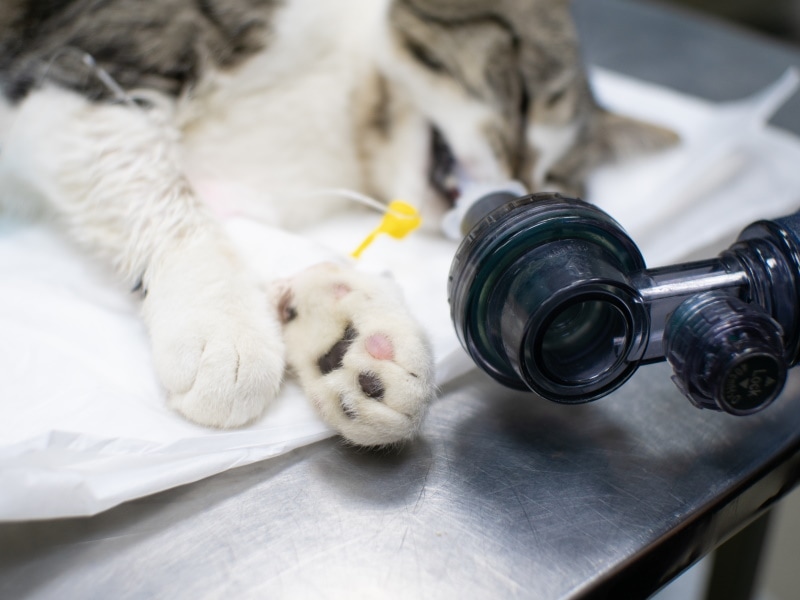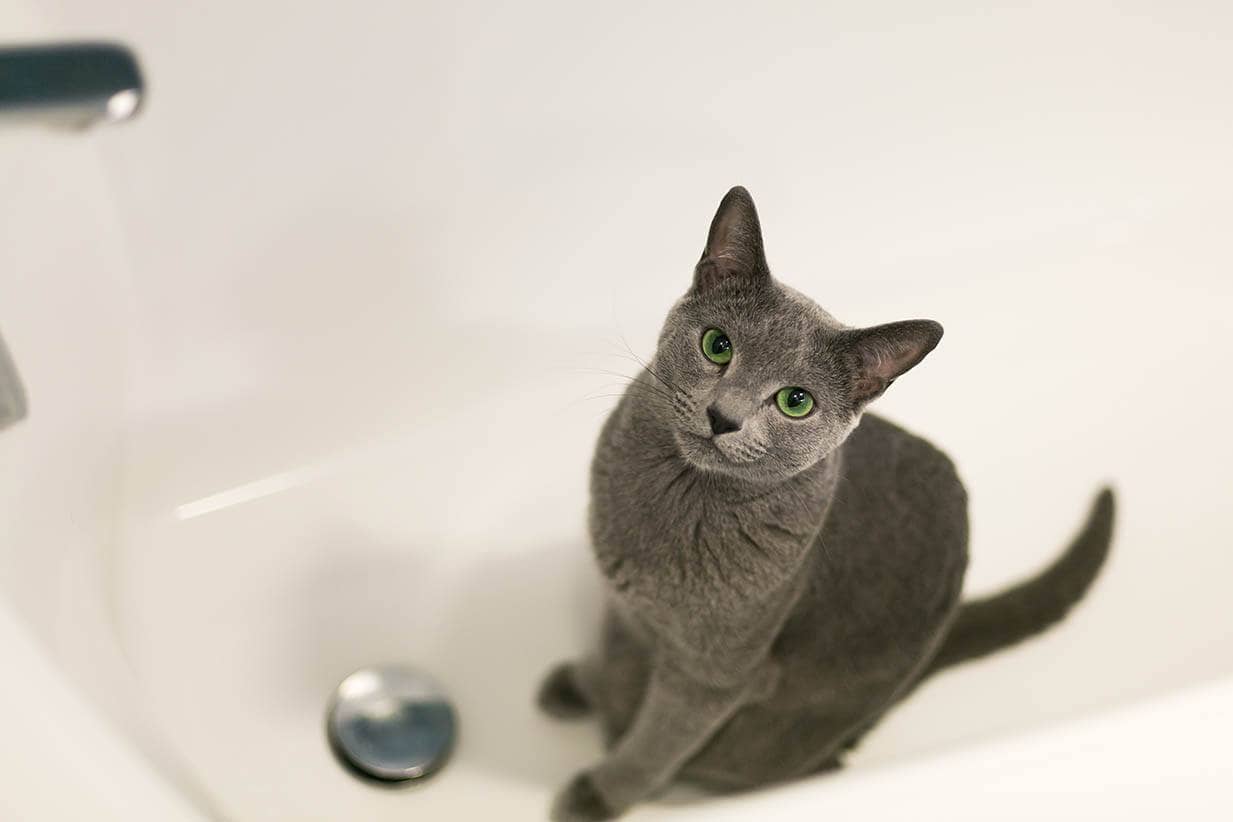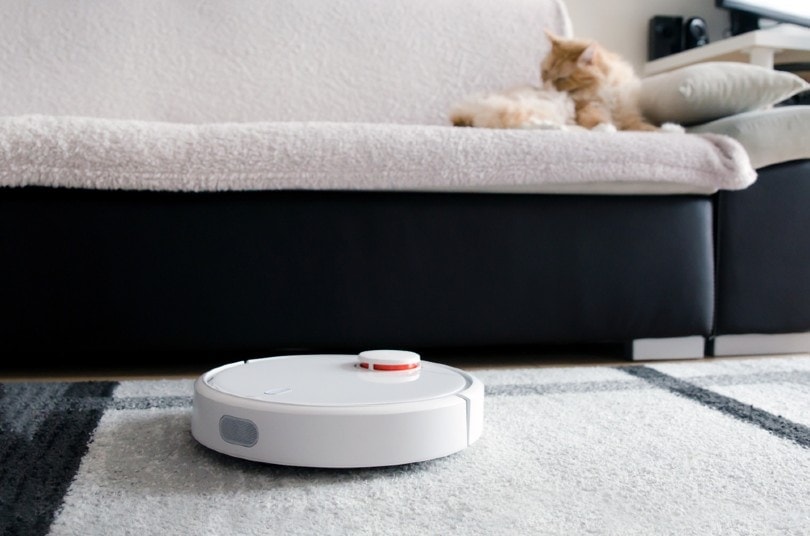How to Get Rid of Old Cat Urine Odor – 5 Homemade Options
Updated on
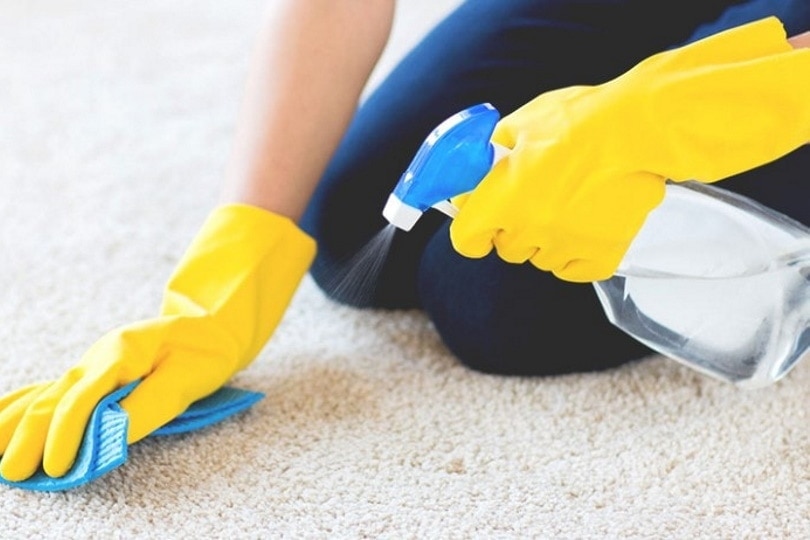
If you’re noticing a constant odor in your cat-filled house, there’s a good chance one of them has taken to urinating in inappropriate places. Cleaning urine accidents quickly is always ideal to avoid stain and odor, but sometimes, it’s just not possible. So, how do you get rid of old, set-in cat urine odor?
Commercial products are one option, but if you prefer to use homemade cleaning products, we’ve got you covered! Here are five home remedies for old cat urine odor removal made with ingredients you probably have on hand right now. We’ll also give you some tips for avoiding inappropriate urination in the first place.
The 5 Homemade Options to Get Rid of Old Cat Urine Odor
1. The Baking Soda Remedy
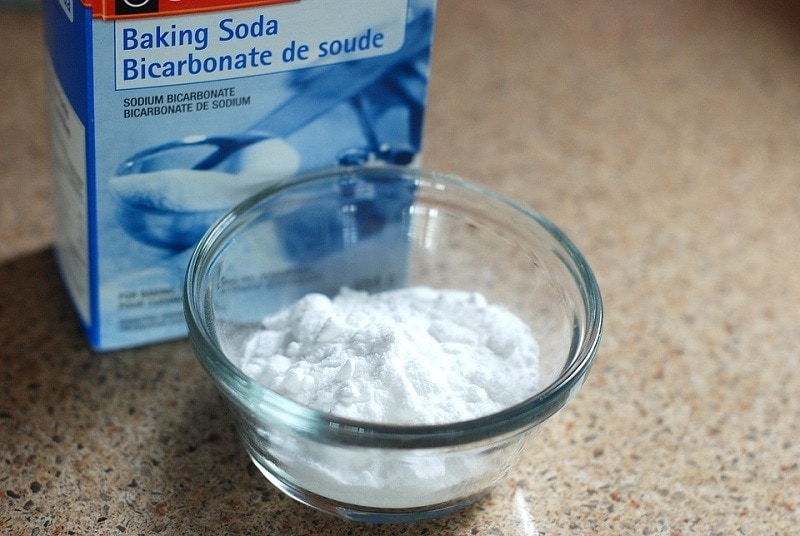
Ingredients:
- Baking soda
Baking soda is a natural deodorizer and can be used to remove old cat urine odors on surfaces, clothing, or bedding. It’s one of the easiest natural remedies because there’s no mixing or preparation involved. You can just use the baking soda right from the carton.
For old urine stains and odors on surfaces, simply cover the area thoroughly with baking soda and let it sit for 15-30 minutes before vacuuming or sweeping it up.
To kill old urine odors in laundry, add baking soda to the wash cycle along with your regular detergent. For really old and stubborn odors, you may need to repeat the process one or more times.
- Easy to use
- Can be used on both surfaces and in the laundry
- May need to repeat treatment for old, set odors
2. The Vinegar Remedy
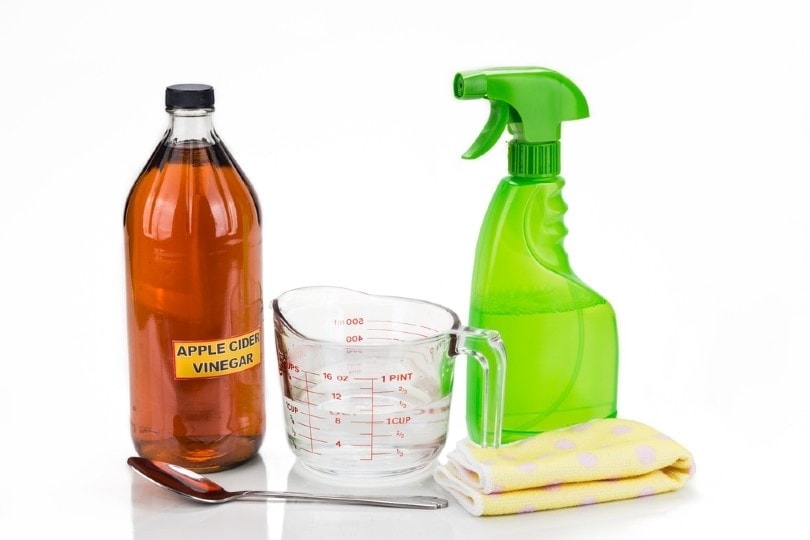
Ingredients:
- White or apple cider vinegar
- Water (if used for surfaces)
Vinegar is an excellent home remedy for old cat urine odors because it works to counteract the ammonia found in cat pee. Like baking soda, vinegar can be used on surfaces or in the laundry. It’s a little messier to use than baking soda because it’s a liquid and there is some preparation involved before use.
To deodorize hard or soft surfaces, mix a solution of 50% white or apple cider vinegar and 50% water in a spray bottle. Soak or spray the smelly area with the vinegar mixture and mop it up with a cloth. Repeat this process several times and then leave the area to dry. As the vinegar dries, it should take the urine smell with it.
For laundry odors, add about ¼ cup of apple cider vinegar to the wash cycle along with your regular detergent.
- Easy to use
- Can be used on both surfaces and in the laundry
- Must be mixed for use on surfaces
- Must dry completely for best results which takes time
3. The Hydrogen Peroxide Remedy
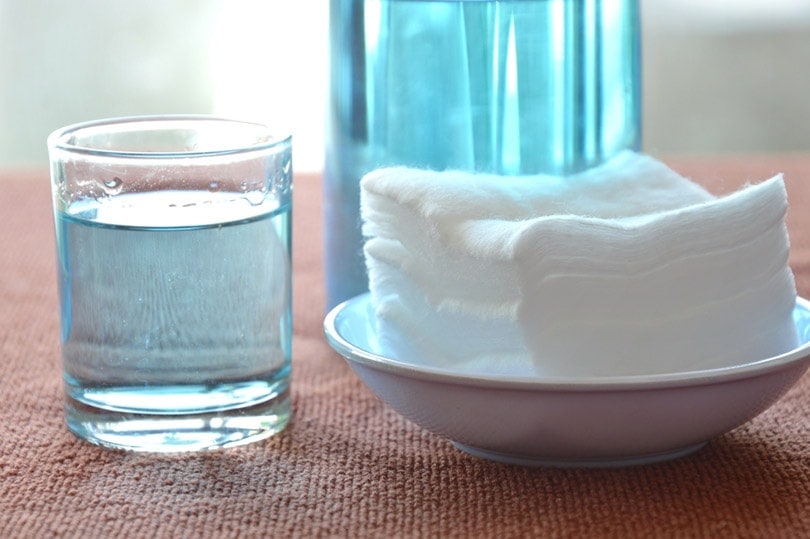
Ingredients:
- 3% hydrogen peroxide
- Water (optional)
Another option if you’ve tried baking soda and vinegar is to reach into your medicine cabinet for a bottle of hydrogen peroxide. Peroxide works by killing odor-causing bacteria in cat urine.
This remedy can only be used on surfaces and with caution because peroxide will bleach materials it comes into contact with. You can pour hydrogen peroxide directly onto the cat urine odor spot and let it sit for at least 5 minutes before blotting.
Another option is to mix ¼ cup hydrogen peroxide with water and use it in combination with baking soda to create a paste scrubbed into the smelly spot. Once the paste dries, vacuum the area. For really set-in odors, you may need to repeat this process.
- Easy to use
- Can be used in combination with other home remedies
- May need to repeat treatment for old, set odors
- May bleach surfaces
4. The DIY Enzyme Cleaner Remedy

Ingredients:
- Approximately 2½ cups orange and lemon peels (from 3 lemons and 3 oranges)
- ⅞ cup dark or light brown sugar
- 4 cups of water
Commercial enzyme cleaners are one of the most effective—but sometimes expensive—methods of dealing with old cat urine odor. If you’re on a budget, try making this homemade enzyme cleaner for a fraction of the cost. The only catch is it takes 3 months to produce the cleaner concentrate so this isn’t a quick solution.
To make this cleaner, combine all ingredients in a 2-liter soda bottle, cap, and shake to mix. Loosen the cap and allow the mixture to ferment for 3 months. Once the concentrate is ready, add ½ cup to a quart of water and spray onto the odor you want to clean. Allow it to sit for several minutes and then blot.
- Works like a commercial enzyme cleaner
- Easy to find ingredients
- Takes 3 months to make
Wnt to try a commercial enzyme cleaner? We have a suggestion:
Our favorite enzyme cleaner for eliminating pet smells and stains is our very own Hepper Advanced Bio-Enzyme Pet Stain & Odor Eliminator Spray. It makes clean-up a breeze because it permanently removes even the very worst smells and stains (urine, feces, vomit, you name it!) from basically any surface you can imagine.
- ADVANCED ENZYMATIC CLEANER - Penetrates the most stubborn smells and stains at the deepest molecular...
- FOR ANY MESS, ON ANY SURFACE - This pet odor eliminator cleans your carpets, floors, furniture,...
5. The Club Soda And Baking Soda Remedy
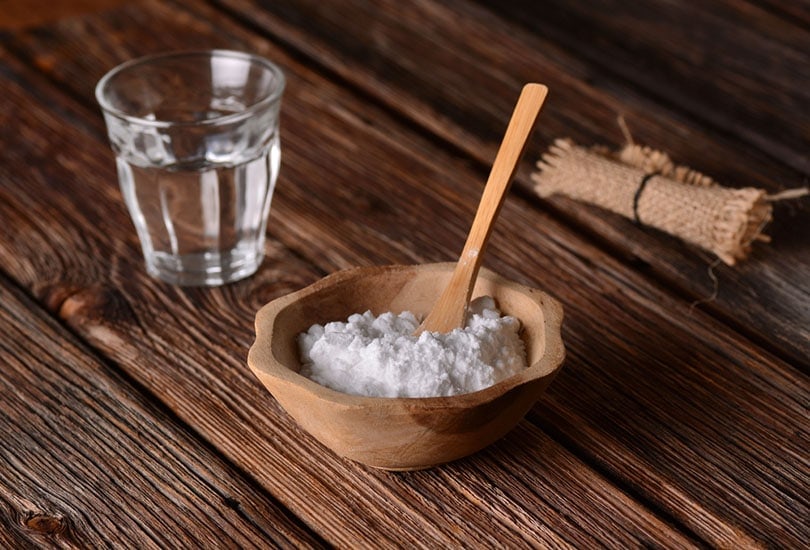
Ingredients:
- Club soda
- Baking soda
This method uses a double dose of “soda” to remove old urine odors. Start by pouring club soda onto the area and scrubbing it thoroughly. After a good scrub, sprinkle baking soda onto the location and allow it to sit as previously described. Then, vacuum the area.
This remedy adds an additional step to the baking soda solution that may help when dealing with extra stubborn old odors. However, it can only be used on surfaces and not laundry.
- Easy to find ingredients
- No mixing or prep involved
- Can’t be used in laundry
Tips for Avoiding Inappropriate Urination
Because the simplest mess to clean is the one that never gets made, finding out why your cat is urinating outside the litter box will make your life a lot easier. Cats may urinate inappropriately for many reasons, medical or behavioral.
Rule Out Any Medical Causes
The first step is to rule out any medical cause for your cat’s accidents. Infections, bladder stones, or a condition called feline lower urinary tract disease (FLUTD), can all result in inappropriate urination. If you own a male cat, it’s especially urgent to diagnose any problems quickly because they can develop life-threatening urinary blockages.
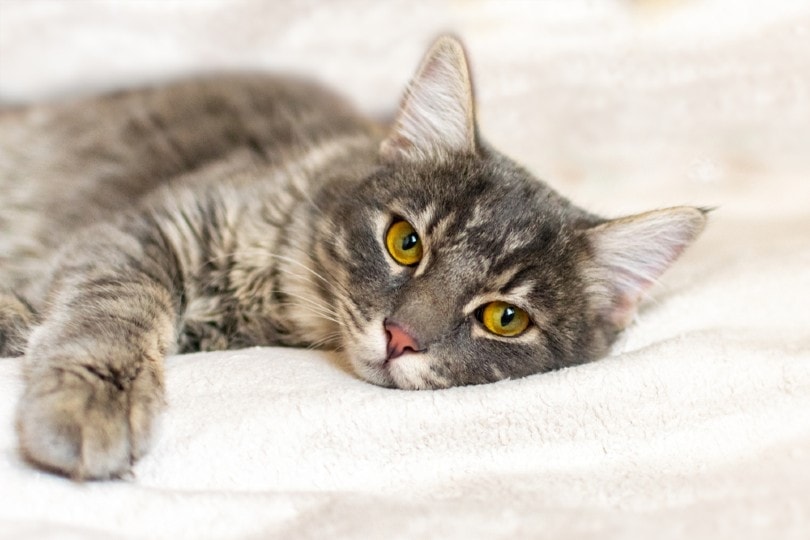
Check Your Litter Box Setup
Once medical causes are ruled out, it’s time to take a hard look at your litter box setup. Some cats aren’t picky about their toilet arrangements, but those who disapprove won’t hesitate to pee somewhere else.
Make sure you have one more litter box available than the number of cats in your house. Generally, you should fill the box with an unscented, clumping cat litter, but it’s most important to pick one type of litter your cat likes and stick with it. Scoop the litter box at least once a day.
Some cats won’t use a covered litter box though many owners prefer them for odor and mess control. Also, check your litter box placement. Cats don’t want to feel closed in when they pee but typically don’t want to use a litter box in a high-traffic area either.
Is There a Territorial Issue?
Cats are highly territorial animals, and one way they mark their territory is by spraying urine. If you’ve ruled out medical issues or litter box aversion, you could be dealing with a territorial struggle.
If you recently introduced a new cat or person into the house, that’s a major indicator your cat may be spraying to mark territory. Does one of your cats routinely bully the other? The bullied cat may not feel safe urinating in the litter box.
Some cats will start urinating inappropriately in response to the presence of an unfamiliar outside cat. Look for urine spots near doors or windows to help confirm your suspicions.
Making sure you have enough litter boxes in the house, spread to different locations, is one way to deal with these causes of inappropriate urination. You could also utilize cat pheromone products in your home to help ease the tension.
Dealing with an outside cat can be more difficult, but you can try speaking with the cat’s owner if you know who it is or contacting a rescue group to help you trap and relocate a stray kitty.
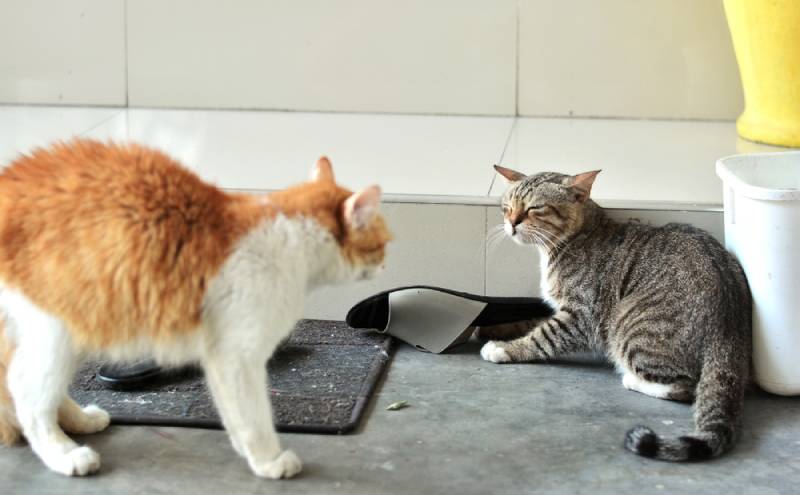
Conclusion
Getting rid of old cat urine odor not only makes the atmosphere in your house more pleasant but will help discourage your cat from continuing to make messes in the same place. For stubborn odors, don’t be afraid to try more than one of our 5 options.
Inappropriate urination is one of the top reasons cats wind up in animal shelters, so don’t be afraid to seek professional help if you’re at your wit’s end. Your veterinarian can offer solutions or even a referral to a behavior specialist if necessary.
Featured Image Credit: Syda-Productions, Shutterstock



